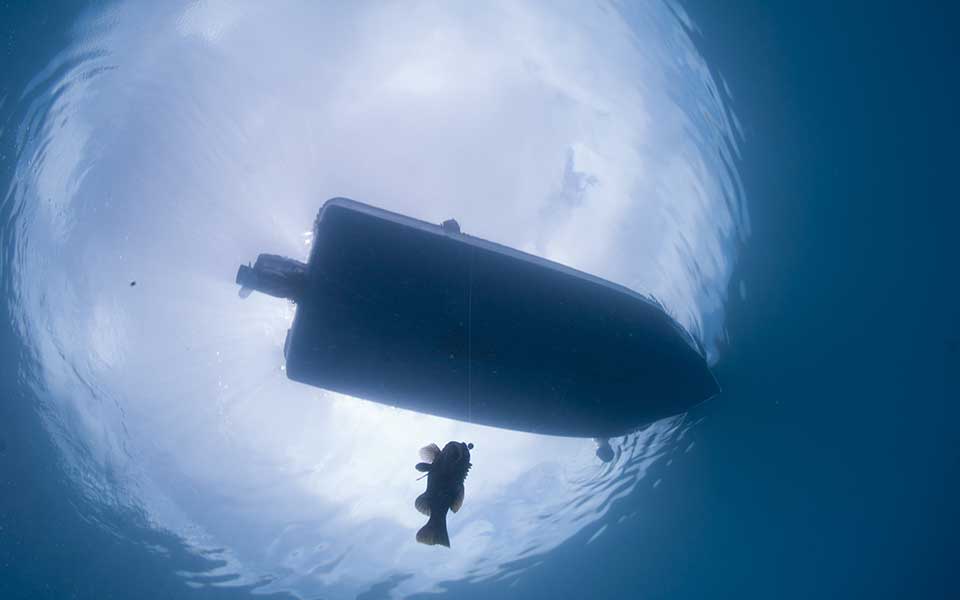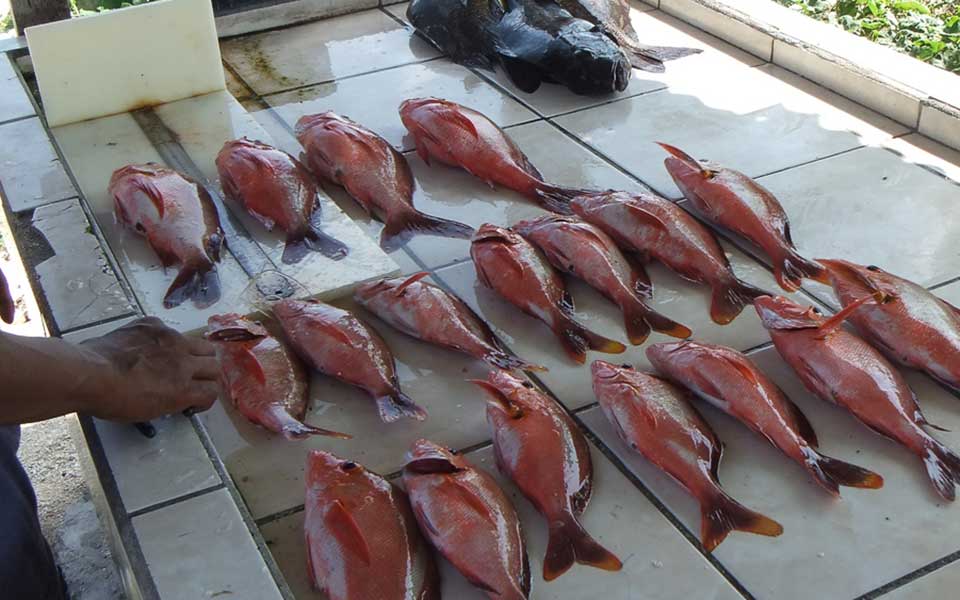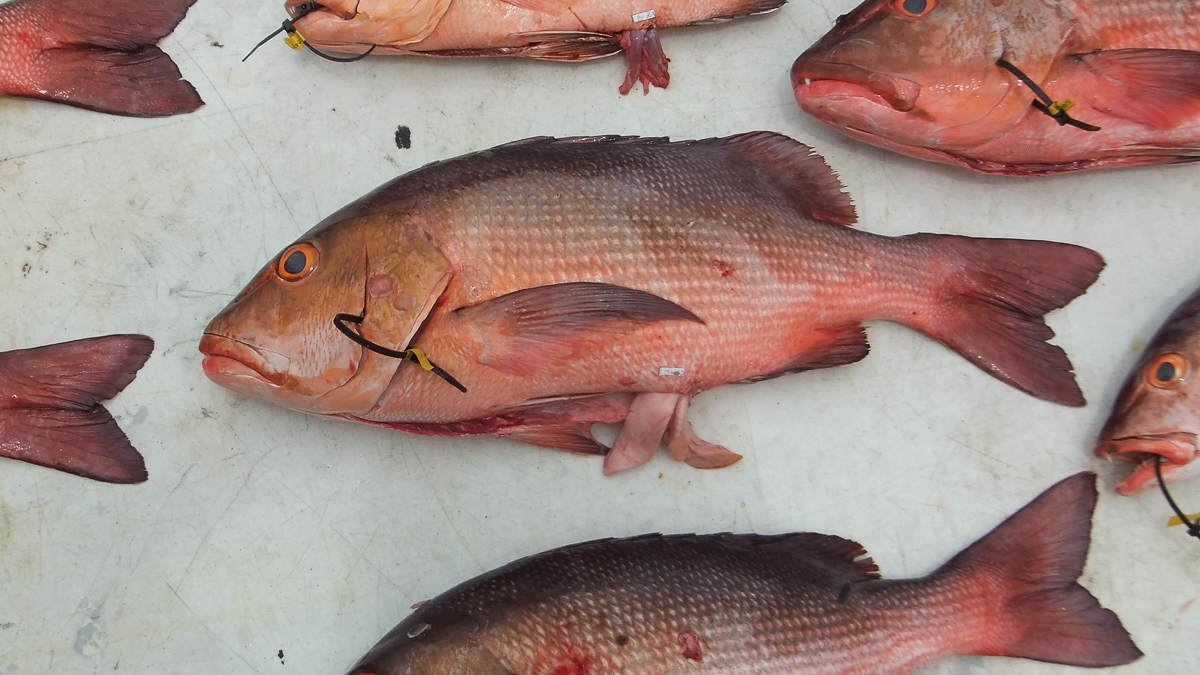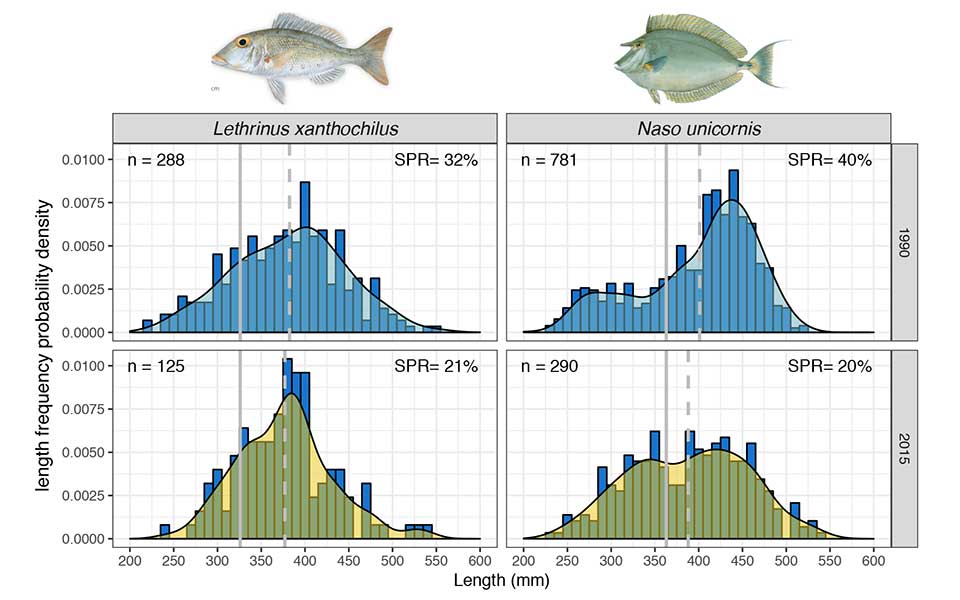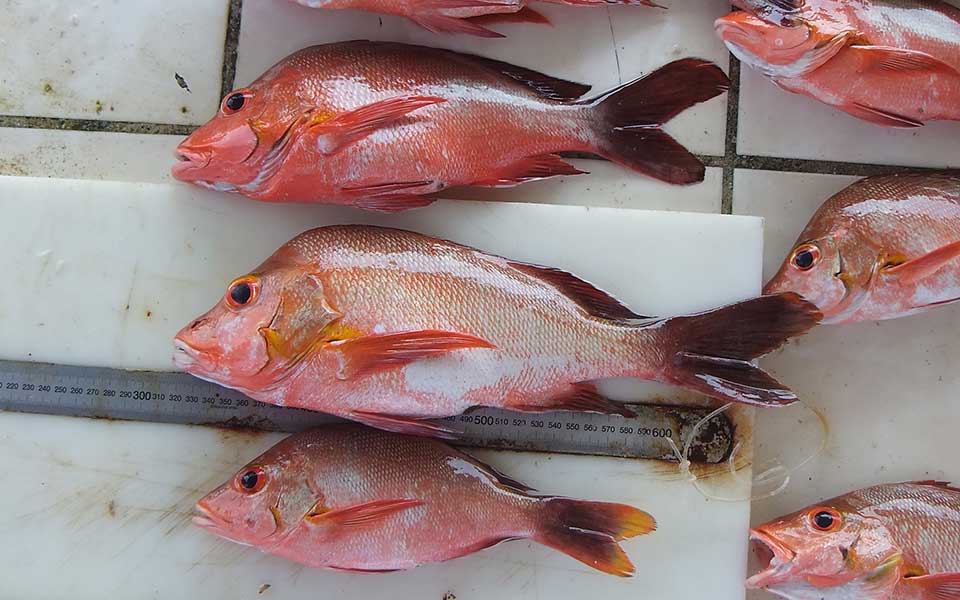Much of the fish that supplies local markets and personal consumption in Palau is caught from the near-shore barrier reef and lagoon. However, it is widely regarded from long-term fishermen that the abundance and size of reef fish have decreased in the last two decades. Fortunately, there has been renewed interest in fisheries management to stem the decline.
To best guide management decisions, we need to understand the status of the stock along with biological information to determine the growth and maturity of the many species caught. To assess the stocks with limited information, data-poor stock assessment techniques have been developed to help bridge the gap between the expensive data-rich assessments conducted only for the most valuable fisheries in the world, and the vast majority of smaller fisheries, especially those on coral reefs that support millions of fishers. Data-poor stock assessment methods in its simplest form require information on the size structure of the population along with an estimate of local size at maturity and or asymptotic length.



